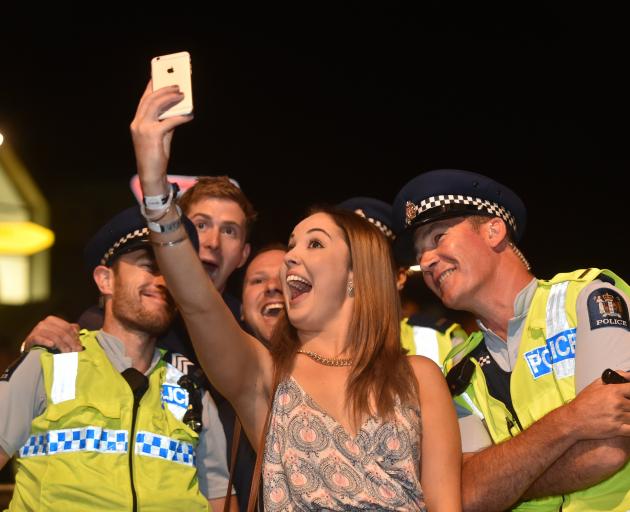
Young people drinking in the streets around Wanaka at New Year has been a serious problem for several years, and, if anything, is getting worse. To New Zealand's binge-drinking culture mix in the excitement of New Year and the encouragement and camaraderie of mates on holiday, and the cocktail for serious and dangerous drinking has been well and truly stirred.
Many get really drunk, and sometimes fights erupt. Some, in a defenceless and vulnerable state, expose themselves to sexual assault. Some are so comatose they suffer serious alcohol poisoning and put their lives at risk. They set themselves up for longer-term health damage. They injure themselves.
The police have had the ability to arrest and impose $250 fines through the central town liquor ban. Many of those congregating in town itself are young, there being few other options. Hotels and other events like Rhythm & Alps are R18.
Police had used the liquor ban as an early intervention tool, warned the young person and moved them along. They did not issue a lot of offence notices, and their actions made little difference. Police, in fact, reported problems were becoming more serious.
In a change of tactics, underage drinkers caught in Wanaka between December 28 and January 2 this year were given an alternative. They could present themselves at the police station to be interviewed and write an essay for police outlining the impact of binge-drinking on a teenager's brain. Or they could incur the instant fine. The teens were given reading and scientific material to help with their essays and had to hand-write them, some completing them at the station.
Most under-18s will struggle to find $250, and others will be desperate to use such money in other ways.
And that is the way it turned out. Senior Sergeant Allan Grindell said 34 essays were written and only two or three offenders chose to be fined.
All were aged between 14 and 17, and eight were female. All but one was from out of town.
Wanaka police seem pleased with the initiative, and say parents have been too. As Snr Sgt Grindell said, the strategy gave teenagers a different kind of contact with police and made them aware of the dangers of alcohol.
While unable to judge the success of the programme at this stage, Snr Sgt Grindell said it was likely to be undertaken again.
He did make the point, however, that it was staff-intensive because police had to sit down with the teenagers every morning. That, unfortunately, is likely to be the way with differing policing options.
Nonetheless, such ideas should be supported. Traditional police work needs to be supplemented with fresh ideas and approaches.
We are sure teenagers in this case would have been dismayed to have to spend chunks of their precious holiday time in Wanaka stuck at the police station or in their accommodation busy writing an essay while their mates enjoyed themselves.
It would have been a rude back-to-school-like experience, and no easy option.
At the same time, while at the station, they would have seen police officers as men and women going about their job.
Hopefully, the process does help build trust and confidence. The police force might even seem a worthwhile career option for some of those whose behaviour saw them punished in this way.
Comments
A person who writes an essay about their knowledge of the damaging effects of too much alcohol then proceeds to binge drink is somebody who is lacking in understanding that they do not even know what it is that they have been taught by life experiences ,writings or parents etc.
You must mean the middle aged. Get them writing too. Let 'em all have a go.
Nowhere in the report does it say the young people were drinking, between assignments. This is police lateral thinking, with positive outcomes you don't get from punitive practice.












